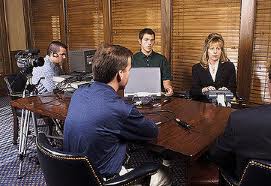
It was all fine and dandy in your legal research class, but now your boss is asking you to write a memorandum of law for a motion for discovery (it could be for any motion), and you are having a panic attack. You have gotten so desperate that you started surfing the internet. It happens.
Just stay calm, and remind yourself that you are a trained professional. You can, with a little guidance, do this.
Writing a memorandum of law in support of a motion is much like putting together a puzzle. You must identify what goes where. For example, you will have facts to include. There will be law that is relevant and needs to be included, and there will be the need to be persuasive at some point, so the judge is convinced of your position. Finally, you will need to tell everyone when the motion is being heard and prove that you served it.
To that end, we have the following parts of the Motion to consider, all of which impact the memorandum of law:
- Notice of Motion (separate document with caption/signature line)
- Memorandum of Law, aka “Memo of Law” (attached to Motion/usually doesn’t have a separate caption/does have signature line)
- Supporting Declaration(s) (usually attached behind Memo of Law (at least one declaration required)
- Exhibits (usually attached to Declaration and referenced therein)
 I cannot speak for the others in my trade, but I know what I as an attorney want in a paralegal.
I cannot speak for the others in my trade, but I know what I as an attorney want in a paralegal.
